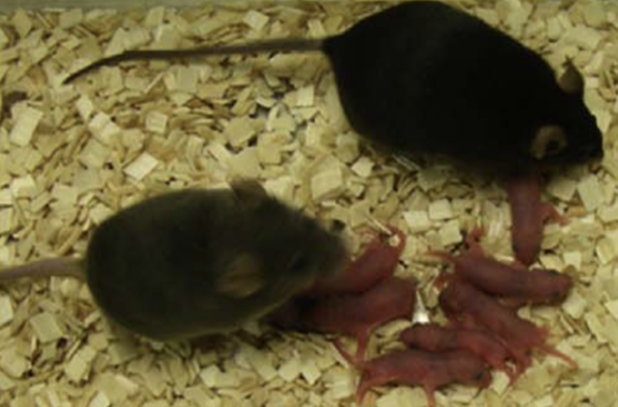Andrew Anglin
Daily Stormer
September 14, 2016
The question I have is: will this help gay men produce babies?
Because that really needs to be the entire focus of science at this point, if we are ever to progress as a society.
For the first time, live baby mice have been successfully produced by injecting sperm into a modified, inactive mouse embryo rather than from a fertilized egg cell, according to scientists.
Mammalian eggs that are not fertilized can be “tricked” into starting the development process toward becoming an embryo, previous research has shown. These unfertilized, slightly developed embryos are called parthenogenotes, but they die soon after they are created, due to the lack of sperm input, which triggers developmental processes.
In the new research, the scientists took these inactive embryos and injected sperm directly into them, which resulted in the birth of healthy baby mice with a success rate of up to 24 percent.
The experiment produced the first ever full-term live mice born from parthenogenotes that were injected with sperm, senior author of the study Tony Perry, a molecular embryologist at the University of Bath in England, said in a statement. [Future of Fertility Treatment: 7 Ways Baby Making Could Change]
“It had been thought that only an egg cell was capable of reprogramming sperm to allow embryonic development to take place,” Perry said. “Our work challenges the dogma, held since early embryologists first observed mammalian eggs around 1827 and observed fertilization 50 years later, that only an egg cell fertilized with a sperm cell can result in a live mammalian birth.”
In order to keep the parthenogenotes from perishing as they normally would, the researchers exposed them to a salt compound called strontium chloride (SrCl2). Previous research had shown that this salt encourages parthenogenetic embryos to begin normal cell division, despite not having been fertilized. The chemically modified parthenogenotes were then injected with the sperm and implanted into surrogate mothers.
The research upended the notion that mammalian sperm cells could only transform into mature sperm cells when they were within an egg — it was thought that only the egg provided the environment for division to begin, and a complex organism to develop. But the new experiment has shown that a parthenogenote can serve the same function as an egg — under the right conditions.
The mice born from the experiment were seemingly healthy, the researchers said. Their life expectancies were similar to those of control mice that were bred traditionally, and they were able to reproduce.
Truly, we could be witnessing the early stages of a new dawn for gay sex babies.
The future is looking bright.
 Daily Stormer The Most Censored Publication in History
Daily Stormer The Most Censored Publication in History



